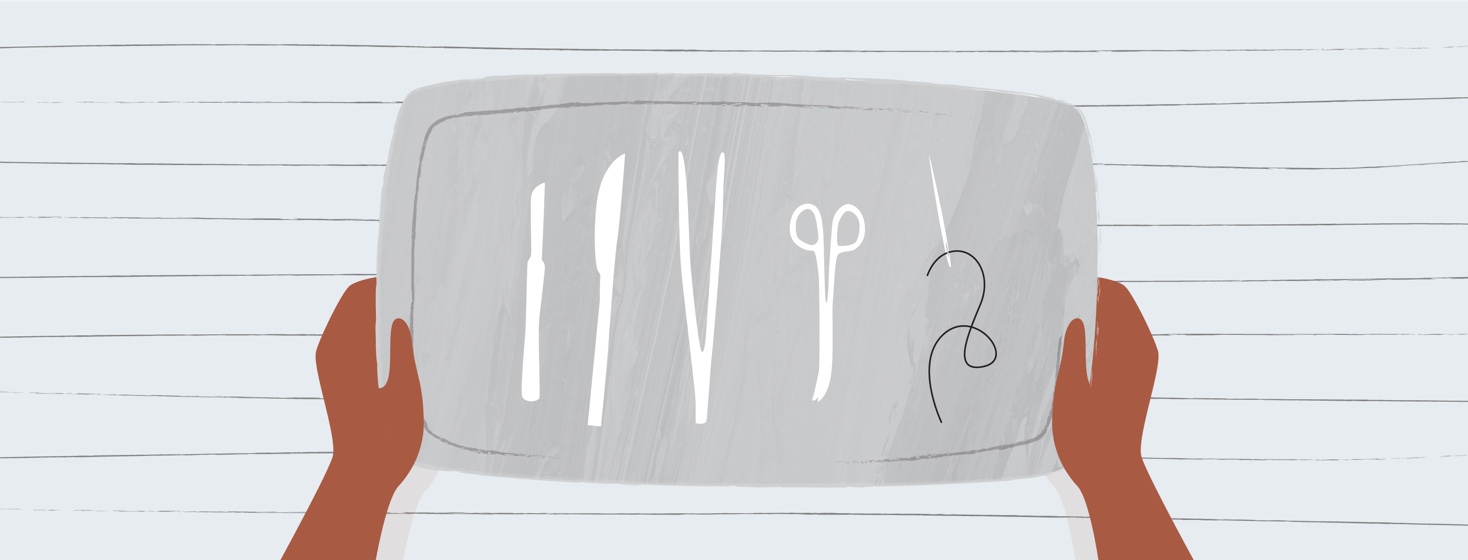Why Linda Chose Bladder Removal Surgery (Cystectomy) & Her Advice
The Editorial Team at BladderCancer.net is highlighting people in the bladder cancer community. We talked to Linda who explained how she decided to go straight to bladder removal surgery to treat her bladder cancer instead of years of cystoscopies and BCG. She discusses her decision, talks about the financial impact, and shares her advice for those in a similar position.
You can also read Part 1 of her interview here where she talks about her path to diagnosis.
Why Linda decided to have bladder removal surgery (cystectomy)
Editorial Team: Tell us how you decided to undergo a radical cystectomy.
Linda: I felt as though I had done enough research and spoken to my doctors and others enough that moving right to RC/IC (radical cystectomy/ileal conduit) seemed the best choice. I am not and have never been a gambler, and I knew that having tests and cystoscopies and maybe BCG for years would cause me undue and unnecessary stress that would negatively affect me, so I chose to cut through the red tape so to speak and am forever glad that I did. My life is wonderful, and I do not have any issues either mentally, emotionally, or physically with wearing a bag, and I also do not have a poor body image. It really is not that big of a deal. Being cancer-free certainly is though!
The financial impact of bladder cancer
Editorial Team: How did bladder cancer impact you financially?
Linda: Initially, as my insurance was canceled when my company suddenly closed, I had several bills from tests and doctors' appointments that had taken place in May and June when the company had apparently not paid the insurance. After I was able to obtain insurance on Obamacare, my cost for myself alone was $1000 for a $2500 deductible plan. I chose a higher cost and lower deductible plan because I knew that something major was wrong with me - I just had not gotten the official diagnosis yet. My bills for the doctors, tests, surgery supplies, etc. from August 1, 2014 to December 31, 2014 were over $600K. Of that, I paid $2500.
Linda's current costs for appointments, tests, and ostomy supplies
I went on my new company's coverage after the 3 month period so effective January 1, 2015, I had an 80/20 plan. My doctor visits were minimal costs, my tests run about $150 per year, and my supplies for bags and supplies cost about $50 a month. Let me say that I have always ordered the maximum allowed each month which is 20 sets each month. The reasons I do this are:
- I never want to be without my supplies.
- I have heard that Medicare is trying to have only one manufacturer provide these supplies, and I am concerned it will be a supplier I do not use. I hope this does not happen because it definitely will cause the user issues if the supplies they use are not covered.
- I speak to dozens of other people with bladder cancer each month, and I feel that it is very important to actually see what a wafer and bag look like and feel what it feels like on your body. On occasion, I will send some supplies to someone prior to their RC to help them see their reality.
Advice for someone preparing for bladder removal surgery
Editorial Team: What advice would you have for someone who is preparing for a bladder removal surgery?
Linda: Research but do not overdo it. Cancer can mentally and emotionally control you and cause your mind to go to places that are not healthy or reasonable. I find it invaluable to actually speak with people and, if possible, to meet with someone who has had an RC and see what it is really like. I have met with literally hundreds of people with bladder cancer and flown to meet a few who were especially struggling. It is so important to me to be able to help calm someone down and let them see what this really is all about. I guarantee they are surprised. The mother-in-law of one person I flew to Denver to meet with was shocked to find that I had worn shorts on the day I met with the patient and family. She thought my bag was trash bag size, and she was thrilled that what was in her mind was not even close to reality. People get in their mind what IC is like from people who have never had the surgery. They think their life will be over, and they will be homebound when actually, it is the exact opposite and they can move on from this dreaded disease and start again.

Join the conversation